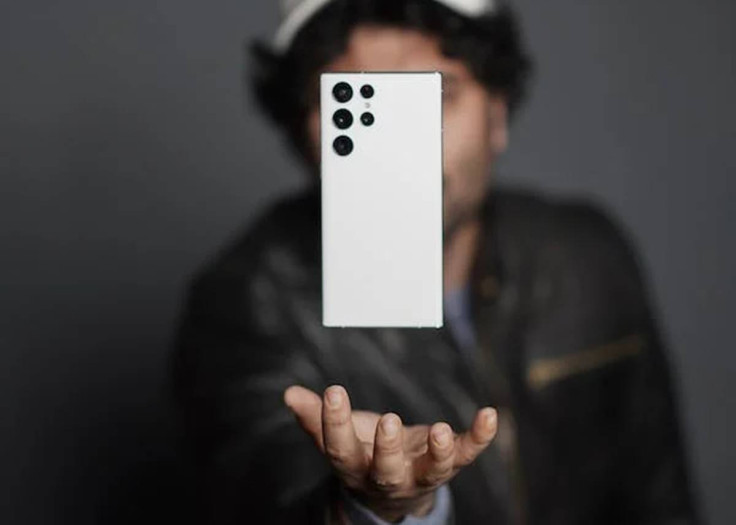Snapdragon 8 Gen 3 chip could make Samsung Galaxy S24 faster than its predecessor
Qualcomm's upcoming Snapdragon 8 Gen 3 chipset is expected to get a significant performance boost, but it could still lag behind Apple's A17 Bionic chipset.

Samsung unveiled its Galaxy S23 series of smartphones last month. However, rumours surrounding the next Galaxy S-series smartphones have started popping up on the web. Meanwhile, the Korean smartphone giant will not likely start teasing the Galaxy S24 series anytime soon.
The recently-unveiled Galaxy S23 lineup comprises three of the best smartphones money can buy right now. So, it is safe to assume that the next-gen S series smartphones will push boundaries for battery life, photography, and overall performance.
The upcoming Samsung Galaxy S24 series could include a standard Galaxy S24, Galaxy S24+, and a Galaxy S24 Ultra model. Reliable tipster Ice Universe said the Galaxy S24 Ultra would oust the telephoto sensor in favour of a new solution. The leaker added that the Ultra model would house a slightly changed main camera on the back.
The Galaxy S23 and OnePlus 11 flagship phones pack Qualcomm's Snapdragon 8 Gen 2 under the hood. The processor delivers improved battery life coupled with major performance gains. More details about the chip maker's upcoming silicon, dubbed the Snapdragon 8 Gen 3, have surfaced online.
Qualcomm Snapdragon 8 Gen 3 details
Popular leaker RGcloudS took to Twitter over the weekend to share details about the Snapdragon 8 Gen 3 chipset. The word on the street is that the unannounced chipset will power some of the highest-end phones slated to launch in 2024.
Snapdragon gen 3 is indeed strong
— RGcloudS (@RGcloudS) March 3, 2023
Bigger jump compared to last gen
Apparently the main contributor was arm itself, especially X4 & 1,4,3 config
i think it's almost confirmed that gen3 for galaxy will beat bionic 17 frequency
"on paper"
up to 3.7+ghz for mobile
Qualcomm reportedly plans to cash in on the success of this year's chipset. Also, Apple is allegedly preparing to unveil its next-gen A series chipsets. According to a report by Wccfetech, 3.7GHz Cortex-X4 is the main core of the Snapdragon 8 Gen 3's CPU. Qualcomm silicon will reportedly support the main core with three efficiency and four performance cores.
If rumours surrounding the 3.7GHz clock speed are accurate, we could see a staggering 15 per cent improvement over the Snapdragon 8 Gen 2's 3.2GHz clock speed. It will be faster than the customised version of the Snapdragon 8 Gen for the Samsung Galaxy S23 series. Notably, the top clock speed of the Snapdragon 8 Gen 2 for Galaxy chipset is 3.36GHz.
Latest news about Snapdragon 8 Gen 3 👇🏻
— Sunay Gourkhede (@Tech_Wallah) March 6, 2023
Summary 👇🏻
- Snapdragon 8 Gen 3 will feature Cortex-X4 with a clock 15% higher than Cortex-X3 in Snapdragon 8Gen 2.
- Cortex-X4 running on Snapdragon 8 Gen 3 can reach 3.70GHz.
- Snapdragon 8 Gen 3 will use 4nm TSMC
- 15% Performance ⬆️… https://t.co/so2iQc04VF pic.twitter.com/6ocSpTFKbh
RGcloudS believes Qualcomm's future silicon will offer a "bigger jump compared to [the] last gen" even if the chipmaker and Samsung do not team up for a customised Snapdragon 8 Gen 3. The Snapdragon 8 Gen 2 chip-backed Galaxy S23 Ultra became the world's fastest Android phone in single-core tests last month.
For comparison, the Galaxy S23 Ultra showed a 44 per cent improvement in the Geekbench multicore score over the numbers gained by the Galaxy S22 Ultra, which packs a Snapdragon 8 Gen 1 chipset. Furthermore, the Galaxy S23 series and the OnePlus 11 significantly improved in 3DMark's Wild Life Unlimited graphics test compared to the A16 Bionic-powered iPhone 14 lineup.
Apple iPhone 15 series
With its faster CPU, the Snapdragon 8 Gen 3 chipset is expected to close the gap between Apple's A16 Bionic chipset, according to a report by Tom's Guide. Past leaks suggest the standard iPhone 15 could feature the A16 Bionic chip, while the iPhone 15 Pro series is expected to get the new A17 Bionic chip. However, the A17 Bionic will reportedly be fabricated on a 3nm process.
On the other hand, the Snapdragon 8 Gen 3 will be built on a 4 nanometers process. A smaller process ensures denser transistors on a chipset, which leads to improved performance and power efficiency. Some reports suggest Apple has bought the 3nm chips developed by TSMC. As a result, the iPhone 15 Pro series could turn out to be more powerful than the Galaxy S24, which has the 4nm Snapdragon 8 Gen 3 chipset.
According to a DigiTimes report, Apple has gained 100% of its initial N3 supply, which is said to have high yields, despite higher costs and a drop in casting utilization in the first half of 2023.
— Sunay Gourkhede (@Tech_Wallah) February 24, 2023
- A17 Bionic 3nm (iPhone)
- Apple M3 3nm (MacBook & iPad)
Advantages of 3NM… https://t.co/7ttCC5RKBg pic.twitter.com/bkUmdt5jU6
Aside from handling performance, chipsets help smartphones last longer on a charge. The A17 Bionic could deliver better power efficiency using a 3nm process. However, the 4nm Snapdragon 8 Gen 3 has better clock speed on its main core. On the downside, this could affect the battery life.
© Copyright IBTimes 2025. All rights reserved.






















